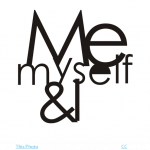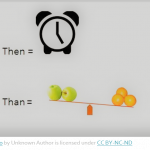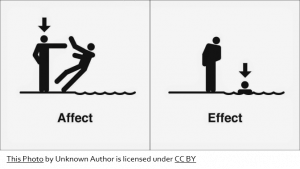4 Soundalike Words and Other Tricky Terms
To, Two, and Too
To is used in the infinitive form of a verb, for example: “to talk”.
To also means towards.
Too means also, as well, or an excessive amount.
Two refers to the number 2.
Try it!
Your and You’re
Your indicates possession (something belonging to you).
You’re is the contraction for you are.
Try it!
Their, There, and They’re
There refers to a place that isn’t here: “I placed the syringe over there”.
There is also used to state something: “There are no folders left.”
Their indicates possession (something belonging to them).
They’re is the contraction for “they are”.
Try it!
Me, Myself and I
When referring to yourself and someone else, follow these steps:
- Remove the other person from the sentence altogether, making the sentence only about you.
- Now try both me or I in the sentence to decide which sounds right.
- “Me is going to dinner.” or
- “I am going to dinner.”
- Finally, put the other person back into the sentence ahead of you. The other person always comes first in the sentence.
Example: Jane and I are going to dinner.
Only use myself if you’ve already used I in the sentence.
Example: I will deal with the employee myself.
Try it!
Then and Than
Than is used in comparisons.
Example: One of the Covid patients appeared to recover much quicker than the others.
Then is used to indicate something following something else in time, as in step-by-step instructions, or planning a schedule.
Example: We’ll go there, then we’ll go there.
Try it! 
Affect and Effect
Most of the time, you can use this rule:
To affect is a verb that means to influence or have an impact on something.
Example: The pandemic affects every part of our lives
Effect is a noun referring to the result of being affected by something.
Example: The pandemic has had many challenging effects on our lives
Exceptions
Affect is also a noun used to describe the way that a patient looks, acts, or is expressing emotion. For example, some mental illnesses cause patients to have a flat affect, which means they are showing very little emotion in their face, voice or body language.
To effect is also a verb that means to bring something about: “to effect a change”. However, this is not very commonly used, so we’ve left it out of the examples to avoid confusion
Try it!
Follow up and Followup
(Also applies to workup and work up)
Followup is a noun or adjective.
Follow up is a verb (a command).
Follow-up is NOT to be used!
Try this test:
Followup is a noun/adjective if you can insert “a/an” before the word and your sentence still makes sense.
Example: The patient has a followup in 3 weeks.
Example: The patient will have followup bloodwork every 6 months.
Follow up is a verb if you insert “a/an’ before the word, and now your sentence no longer makes sense.
Example: Please follow up with me at the end of the month.
Some Other Tricky Words
- Recur (NOT reoccur)
- A lot (NOT alot)
- All right (NOT alright)
- Oftentimes (NOT often times)
- Fatigability (NOT fatiguability)
- Plane vs. plain
- Fluctuance (NOT fluctuants)
References
Gilmore, D. M. (2014). Medical Transcription Projects. Stamford, Connecticut, United States of America: Cengage Learning.
means that something has happened again
means much or many
means okay
means frequently
Means how readily the person tires.
The direction along which CT or MRI imaging slices the body/organ (sagittal, axial/transverse, coronal/frontal).
(when referring to x-rays) means unenhanced (no dye used) or 2-dimensional
The rate or level of change.


Feedback/Errata